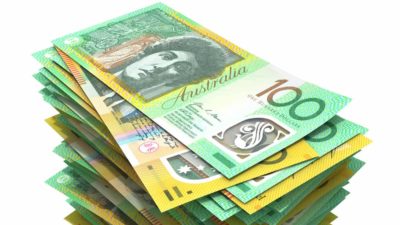Howard Marks is the founder of US-based asset management firm Oaktree, which manages US$192 billion for its clients. He has written investment memos since 1990, which became popular among investors.
Even legendary investor Warren Buffett once said, "When I see memos from Howard Marks in my mail, they're the first thing I open and read. I always learn something."
In his recent memo, The Folly of Certainty, published on 17 July, Marks discusses the benefits of doubt in investing. Let's delve into three lessons I picked up from this memo.
Intellectual humility
In the article, Marks emphasises the importance of intellectual humility, especially in fields like politics, economics, and investing. He argues that certainty can be dangerous, as unforeseen events and psychological factors often play significant roles.
Intellectual humility involves acknowledging uncertainty and being open to the possibility of being wrong. He said:
There's no way a macro-forecaster can produce a forecast that correctly incorporates all the many variables that we know will affect the future as well as the random influences about which little or nothing can be known.
Unpredictability of events
Marks highlights numerous instances where expert predictions were proven wrong, such as the 2016 presidential election in the United States, which Donald Trump unexpectedly won, and the Fed rate hikes after the COVID-19 pandemic and market reactions.
He rightly points out that even if your predictions on rate hikes were correct, your projection about the investors' reaction in the share market might have been entirely wrong. This underscores the unpredictability of events and the limitations of forecasting despite the confidence often expressed by pundits and analysts.
Investors can benefit from understanding what experts say and considering how they could be wrong. This approach is akin to the late Charlie Munger's technique of inversion thinking, which means thinking backward. So, when evaluating a potential investment, start by thinking about the main risks and what could happen if those risks do occur.
The opposite could be true. For instance, many investors are worried about the decline in commodity prices and its impact on mining giant BHP Group Ltd (ASX: BHP), which has caused its share price to drop by 16% over the last six months.
What if the experts were mistaken? Currently, consumption is low, and ASX consumer discretionary stocks like Accent Group Ltd (ASX: AX1) and Super Retail Group Ltd (ASX: SUL) are correspondingly weak. What could change this macro trend, and how would these stocks react then?
These are valuable questions to ask.
Market behaviour and psychology
Finally, what caught my attention in this article is the role of emotions and human psychology in leading to greater volatility in the share market. Marks illustrates this point by providing the 40-year standard deviation of annual percentage changes. Standard deviation measures how spread out the annual returns are.
- US GDP fluctuated with a standard deviation of 1.8% over the 40 years
- US corporate profits swung with a standard deviation of 9.4% during the same period.
- S&P 500 (INDEX: INX) annual returns showed a wider movement, with a standard deviation of 13.1% during the same period
Marks points out that the economic assumption of a rational person ignores the role of emotion and psychology in the stock market. He explains:
The financial 'sciences' – economics and finance – assume that each market participant is a homo economicus: someone who makes rational decisions designed to maximize their financial self-interest.
But the crucial role played by psychology and emotion often causes this assumption to be mistaken. Investor sentiment swings a great deal, swamping the short-run influence of fundamentals. It's for this reason that relatively few market forecasts prove correct, and fewer still are "right for the right reason".
As Warren Buffet's teacher Benjamin Graham described in his 1949 book, Mr Market is manic-depressive, driven by panic, euphoria, and apathy.
By understanding this, ordinary investors like us can benefit greatly.









